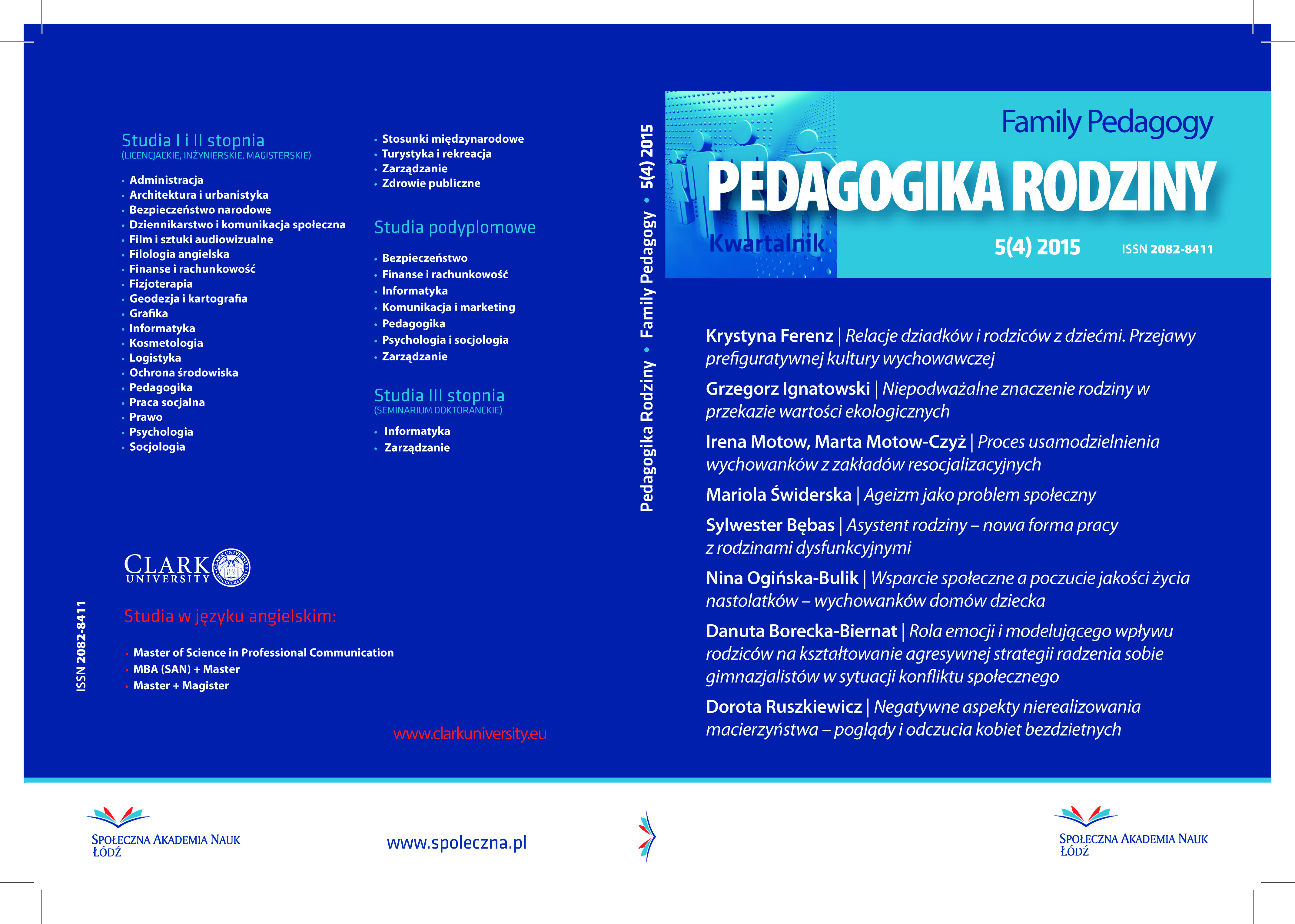Rola emocji i modelującego wpływu rodziców
na kształtowanie agresywnej strategii
radzenia sobie gimnazjalistów w sytuacji
konfliktu społecznego
Rola emocji i modelującego wpływu rodziców
na kształtowanie agresywnej strategii
radzenia sobie gimnazjalistów w sytuacji
konfliktu społecznego
Author(s): Danuta Borecka-BiernatSubject(s): Social Sciences, Psychology, Sociology, Behaviorism, Social differentiation, Studies in violence and power
Published by: Społeczna Akademia Nauk
Keywords: gymnasium youth; emotional reactions; modelling behaviour; aggressive coping strategy; social conflict situations
Summary/Abstract: The aim of the study was to evaluate the contribution of emotions and parents’ coping strategies in a conflict in generating aggressive coping strategy in a social conflict situation in youth. The study made use of the author’s questionnaire to test the coping strategies of youth in a social conflict situation (KSMK), a Three-Factor Inventory of Personality States and Traits (TISCO) by C. Spielberger, K. Wrześniewski and the author’s questionnaire to test the parents’ coping strategies in a social conflict situation perceived by a child. Empirical studies were carried out in gymnasiumschools in Wroclaw and the surrounding area. They involved 893 adolescents (468 girls and 425 boys) aged 13-15. Based on the analysis of the collected research material it is concluded that the adolescents’ participation in a situation threatening to the fulfilment of their own aspirations escalates negative emotions. Aggression is a form of coping with anger and anxiety felt in a social conflict situation. In the light of the carried out studies it was stated that the mother and the father employing a strategy based on aggression contribute to the modelling of a strategy involving aggressive behaviour applied in a social conflict situation by the youth. It should be noted that the characteristics of the role model that makes it easier to be identified with, the sex, plays an important role in the modelling conditions in a conflict situation. There has also been noted that the parent of the opposite sex prefers reactions favouring the aggression strategy of the youth in adolescence.
Journal: Pedagogika Rodziny
- Issue Year: 5/2015
- Issue No: 4
- Page Range: 137-155
- Page Count: 19
- Language: Polish

